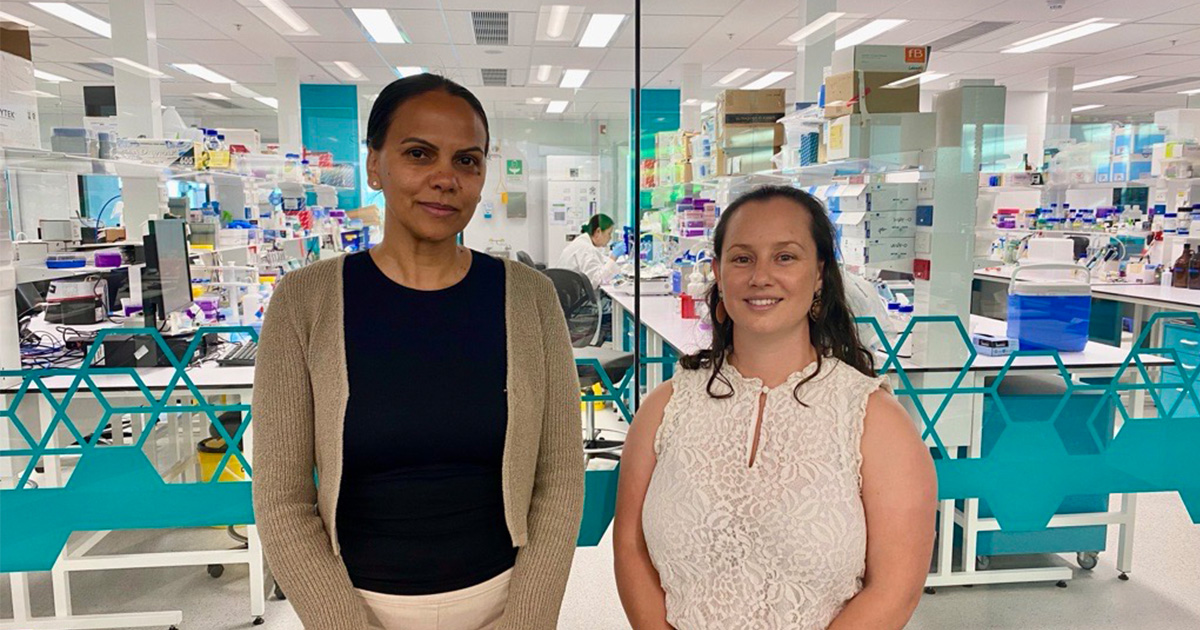
A review led by the First Nations Childhood Cancer team at The Kids Research Institute Australia has highlighted the urgent need for Indigenous-specific studies focused on cancer outcomes, survivorship and equity.
Published in the Medical Journal of Australia, the paper outlines clear priorities for improving cancer research and care for Aboriginal and Torres Strait Islander children.
Although paediatric cancer remains the leading cause of disease-related death in Australian children, the review reveals that research specifically addressing the unique challenges faced by Aboriginal and Torres Strait Islander children is limited, fragmented, and lacking in scale.
Led by five medical students - four of whom are Aboriginal - and Dr Jessica Buck, a Kamilaroi woman and Head of the First Nations Childhood Cancer team, alongside a team of clinicians and researchers, the highlights persistent survival disparities.
While incidence rates in Aboriginal and Torres Strait Islander children are lower compared to their non-Indigenous peers, survival outcomes remain significantly poorer. Paediatric oncologists have also observed that Aboriginal and Torres Strait Islander children are more likely to suffer treatment-related side effects, experience longer hospital stays, and face higher complication rates. However, evidence remains sparse due to small patient numbers and a lack of longitudinal data.
The review then explores the structural, geographic and cultural barriers that limit access to ongoing care - particularly in survivorship. A significant proportion of Aboriginal and Torres Strait Islander children live in regional or remote areas, where follow-up care is often not available, accessible, or culturally safe.
The review puts forward four key priorities for future research:
- Co-design with communities: Future research must be co-designed with Aboriginal and Torres Strait Islander communities to ensure it is driven by community priorities and reflects cultural values. This collaborative approach promotes culturally relevant research and empowers communities to shape the work that affects them.
- Molecular and genetic differences: No studies have yet reported whether molecular or genetic differences contribute to poorer outcomes in Aboriginal and Torres Strait Islander children. Because patients present in small numbers at individual centres, national collaboration is essential. Pooling data across the country will provide the statistical power needed to uncover these patterns and guide targeted treatments.
- Survivorship: Improving survival is not enough - research must also focus on the quality of life after treatment. Survivorship research in Indigenous populations is a global priority. In Australia, this is especially urgent given many Aboriginal and Torres Strait Islander children live in areas with limited access to culturally safe survivorship services.
- Building an Aboriginal and Torres Strait Islander workforce: Strengthening clinical and research capacity is essential. There is currently a wave of emerging Aboriginal and Torres Strait Islander cancer researchers with strengths in epidemiology, genomics and cancer biology. The review calls for investment in training and mentoring of the next generation of Aboriginal and Torres Strait Islander paediatric oncologists, nurses, allied health professionals and researchers. A dedicated, Aboriginal and Torres Strait Islander-led workforce will ensure research is grounded in lived experience and community relevance.
The authors point out that improving cancer outcomes for Aboriginal and Torres Strait Islander children will require more than incremental change.
“Research for Aboriginal and Torres Strait Islander children affected by cancer needs to move far beyond the basic measures, and it is time to ensure parity in the progress of research in Aboriginal and Torres Strait Islander children,” they conclude.
